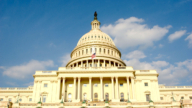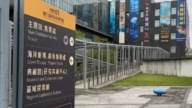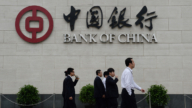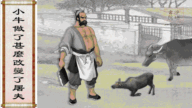【新唐人2011年12月6日訊】中國人民銀行日前發佈一份報告,認為大陸樓市的房價拐點已初現端倪。部分商業銀行擔憂出現恐慌性拋售。但隨著央行下調存款準備金率,也有人猜測樓市調控將會放鬆。而大陸住建部則要求,各地明年繼續執行限購政策。大陸房地產調控出現混亂,讓我們來聽聽專家的分析。
央行調查統計司在11月24號舉辦的「房地產金融風險管理」座談會上,通報了《當前房地產市場形勢分析報告》和《房地產市場變化對金融業影響的調查報告》。報告認為,數據顯示,房地產開發投資增速開始回落,房地產開發企業資金趨緊,土地交易市場量價齊跌,房價拐點已經出現。
座談會上,部分商業銀行代表提出,房價下跌20%後,會不會誘發恐慌性拋售?對於拋售,當局能不能採取有效措施,令人擔憂。
政治經濟評論家草庵居士:「中國的房地產在最近10來年當中,尤其是08年之後,已經瘋狂到了極點。泡沫化是大家都可以看到的,中國(中共)政府只不過是最近承認了這個事實。而且,這種恐慌性隨著時間的發展,還會加劇。」
央行11月30號宣佈,從12月5號起,下調銀行存款準備金率0.5個百分點。這是央行3年來首次下調存款準備金率。有評論認為,這是「貨幣政策放鬆的信號」,也有人猜測,這可能意味著樓市調控政策將會放鬆。
但在此之前,大陸住建部已經要求10個城市的地方政府,在這個月底房屋限購政策到期之後,繼續實施限購令。
政治經濟評論家草庵居士:「中國(中共)政府面臨一個緊縮、一個滯漲這種情況,它是很難處理的,它實際上是兩頭做不到的。如果刺激經濟、增發錢的話,就推高房地產;而如果不發錢的話,經濟就會全面崩潰。對它們來說,這是一個很嚴重的問題。」
今年以來,歐元區的危機促使歐洲各國遏制消費、進口減少。中國對歐洲出口因此大幅度衰退,製造業迅速萎縮。
「紐約市立大學」經濟學教授陳志飛指出,這種衰退讓中共當局始料不及,大陸經濟面臨滯漲的危險。
陳志飛:「它(當局)沒有想到,中國的製造業、中國的整個經濟發展速度,會趨於一個硬著陸的狀態。所以,它採取了一個緊急的措施。等於這個車要停了,要撞掉了,現在又踩了一下油門,這就是它為甚麼提高了儲備金0.5%。」
陳志飛認為,當局又要刺激發展,避免經濟硬著陸,又要打壓樓市來減緩通貨膨脹,處於兩難境地。他強調,當前,因為懼怕物價過高威脅統治,中共會試探繼續打壓樓市,來緩解巨大民怨;但明年當局有可能放鬆流通、再度大幅刺激經濟發展。
中國指數研究院12月1號公布的數據顯示, 11月份全國上百個城市住宅均價連續第三個月環比下降,且降幅有所擴大,專家預計,未來大陸房價將加速下滑。
新唐人記者常春、李謙、李月採訪報導。
China’s House Prices: Authorities Dilemma
People’s Bank of China issued a report that house prices
in mainland China have reached a turning point.
Some commercial banks are worried about panic selling.
With the Central Bank decreasing the deposit reserve ratio,
people also think the house market regulation will be relaxed.
However, the Ministry of Housing requires the policy
of constraining house purchase to continue next year.
The real estate regulation in mainland China appears chaotic.
Let’s hear what experts think on the issue.
On November 24, the Central Bank and Statistics’ Department
issued two reports on “real estate financial risk management.”
They were,
“The situation analysis of current real estate market,” and
“Investigation report on the impact of real estate market
changes to financial sectors,” and were presented in a forum.
The reports show that according to data, the investment
growth rate of real estate development has begun to fall.
The enterprise funds for real estate development
show a trend of shrinking.
Both the amount and the prices in land market are falling.
The inflection point of house prices has occurred.
At the forum, some representatives of commercial banks asked
whether to induce panic sell-off if the house prices fall by 20%.
The sell-off itself can be a worrying trend,
if the authorities are not able to take effective measures.
Caoan Jushi (political and economic commentator):
“The real estate in mainland China in the last 10 years,
especially after 2008, has reached an extreme in insanity.
The bubble is something everyone can see.
Chinese government only recently acknowledged this fact.
Moreover, this panic will grow with time, and will intensify.”
On November 30, Central Bank announced, from December 5,
the deposit reserve ratio is lowered by 0.5%.
This is the first time that the Central Bank has lowered
the deposit reserve ratio within 3 years.
Some commentators believe that this
is “a signal of relaxing monetary policy.”
Some people also speculate that this may mean,
the regulation of housing market will be relaxed.
However, before this China’s Housing Ministry asked local
governments of 10 cities to continue the policy of constraining house purchase, after it expires at the end of this month.
Caoan Jushi: “Chinese government is facing an austerity,
a stagflation situation. It’s difficult to deal with it.
It’s actually not able to do both. If it stimulates the economy
and issues more money, it will boost the real estate bubble.
If it does not issue money, the economy will collapse.
For it (the Chinese government), this is a very serious problem.”
This year, the crisis in the euro zone caused the European
countries to curb consumption and decrease imports.
Chinese exports to Europe have also dramatically declined.
Thus China’s manufacturing sector declines rapidly too.
Economics professor at City University of New York,
Chen Zhifei, points out that
the recession makes CCP (Chinese Communist Party)
authorities’ prediction to fail,
He thinks the economy in mainland China
faces the risk of stagflation.
Chen Zhifei: “It (CCP) did not think China’ manufacturing
industry and economic growth rate will reach a hard landing point.
So it had to take an emergency measure.
It equals to stopping a car by bumping it.
Now they experience the throttles.
This is why they increased the reserves by 0.5%.”
Chen Zhifei thinks the authorities want to stimulate growth
and avoid hard landing,
but also to suppress real estate market to slow down inflation.
Therefore they are in a dilemma.
He stressed that at present they are afraid the high commodity
prices will threaten their power.
Thus CCP would continue trying to suppress the house market,
in order to ease the tremendous resentment in people.
But next year the authorities may loosen the circulation,
and significantly stimulate the economic development again.
China Index Research Institute released
a new data on December 1.
It shows that in nearly 100 cities the average house prices
in November have declined for a third consecutive month.
And that the decline rate has expanded. Thus experts predict.
the house prices in mainland China will be falling quickly.
NTD reporters Chang Chun, Li Qian and Li Yue





























